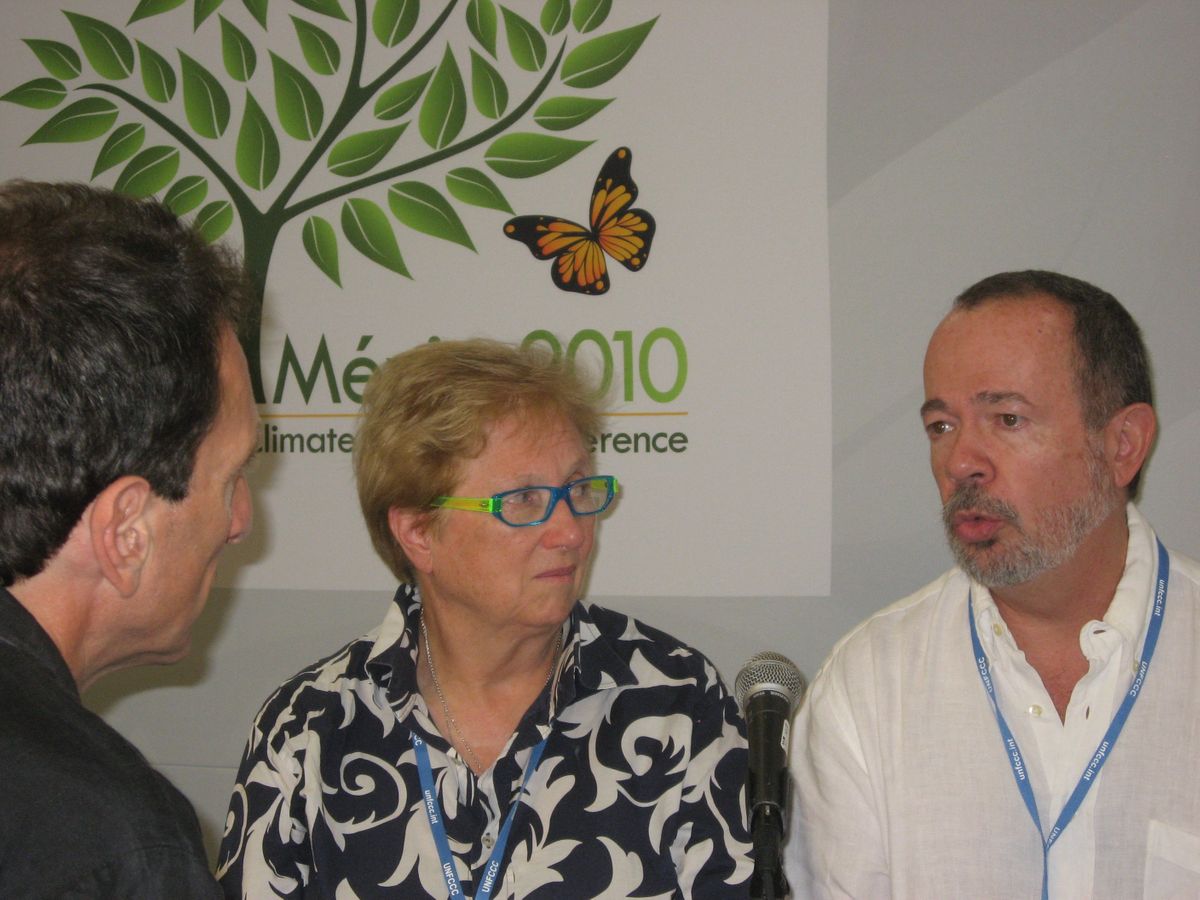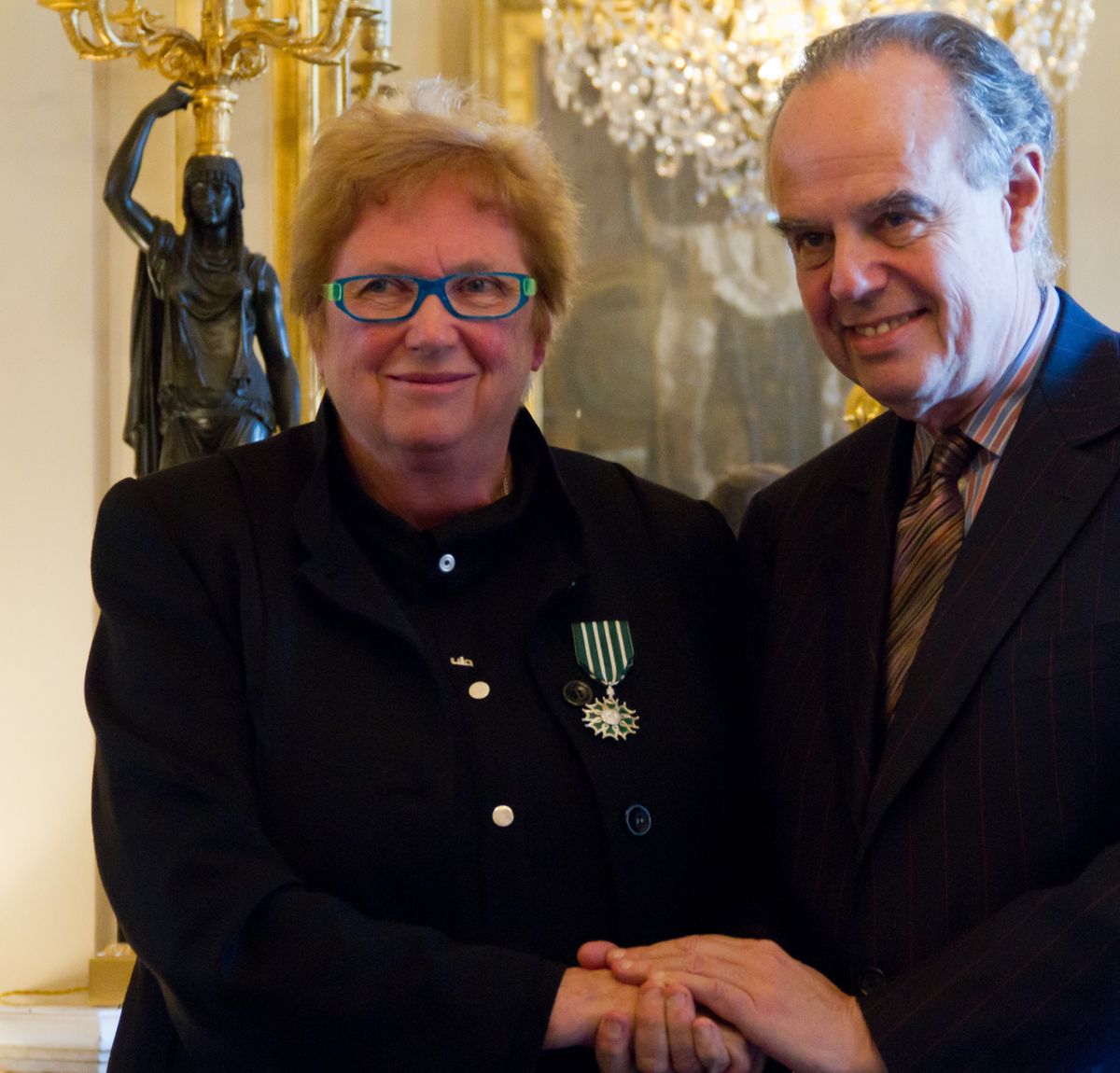Louise Cox
Views and experiences of Louise Cox, UIA Past President 2008 – 2011
Understanding your culture is most important. I was exposed to artworks and culture from the age of about three and our Australian and all other cultures are still extremely important to me. I studied architecture at university. It was a long course of five years, with subjects ranging from the arts to the sciences, which gave me a very balanced education. It enabled one to do anything. I still needed to learn on the job afterwards.
I have enjoyed my career in architecture in Australia and elsewhere. As an architect it enabled me to pursue many other things like planning, landscape design, business of architecture, legal and engineering aspects, building standards and architectural politics. In Australia it was a challenge to succeed as a woman in the beginning, then as the profession and the construction industry tested and accepted women, more and more have become part of the profession so that now in Australia we are accepted as architects first and women second.
Women have been silent for too long, now it is their turn to shine.
Whilst I have been travelling the world and observing what is happening in every continent, I have noticed that as architects and students of architecture we are losing one of our great skills that allow us to stand apart from others, the mind – hand connection, which we have nearly lost through the use of the computer. We should all be able to wield a pencil. We need to regain this skill, as computer technology is just a useful tool.
Responsibility and sustainability, heritage and culture these should also be our aims now and in the future. We must continue our Sustainable by Design Strategy as the architect’s vision of the future needs to include an appreciation of environmental principles, cultural and natural heritage and the use of locally available resources to address local needs and life styles. The earth is crying and we are experiencing cataclysmic earthquakes and natural disasters somewhere in the world daily. We need to tackle how to deal with Climate Change or we may lose our local heritage altogether. Rising sea levels are already impinging on the available land. We are experiencing great weather changes that are causing droughts, floods and fires everywhere. We must do something now.
Working with UN-HABITAT we all worked for the Millennium Goals and now we should all be working with them towards the Sustainable Development Goals and contribute to the Climate Change discussions annually.

A city’s heritage illustrates its ancient and recent history. It reflects the memory, skills and wisdom of successive generations of the inhabitants and leaders. It provides those who live in and use the city with important references, landmarks and spaces, contributing to their quality of life. Cultural heritage provides us with the best signposts to achieving these ambitions. What we design and build today will be heritage tomorrow!! We need to continue our close collaborations with UNESCO and the UIA Heritage Work Programme and onwards. Do not be afraid to look back at what has happened before. Learn from it to go forward into the future. There is nothing new on the face of the earth, it has all been done before. Be able to dissect what is important to go forward. Respect all cultures and learn from them as all of them have something to offer. Your culture and heritage can guide you forward.
Change is required in all cities, large or small, in developed and developing cities. Renewable energy generated locally should be encouraged for all cities. Transportation in cities should be reassessed, with the use of more bicycles and electric vehicles encouraged. We have to stop the use of oil-based transport and change to “green” energy. This will require changing practice and rapid action on the part of all professionals working on the built environment. This shift must include the re-engineering of cities at all scales of urbanity; city-greening policies; market responsiveness; the development of partnerships and resources for innovative solutions; and lastly, new approaches to urban development and management. Architects must be part of this new action. As Professionals we need to start working at this on a smaller scale with local governments, as well as with large city governments and the state.
Being an architect has given me a great advantage when travelling to appreciate how others live and contribute to the built environment. There is nothing new on this earth, the ancients understood their environment and how to live in their local conditions, as they had to survive without high tech solutions.
Listen, learn, observe and respect everyone, as they all have something to contribute, so enjoy it.

There is hope, and we can all reach for the stars, we just have to take all the opportunities handed to us, whether big, small, or minute. I have taken the challenges and opportunities offered to me. It is not about me or you though, it is about others – the people – they all have something to contribute. Be sensitive and helpful and listen to all angles and consider them before making a final decision. Be able to see the big picture and the smallest detail, both are very important. Be brave, suggest a different perspective about something, if it shows a better way to do it. Be an enabler, one cannot tell others what to do, we can though show them a different new way and encourage them to do it themselves.
Anyone can do anything they wish, they have to believe in themselves and go for it until they get there. They have to take all opportunities offered to DO it themselves, no one else can do it for them.